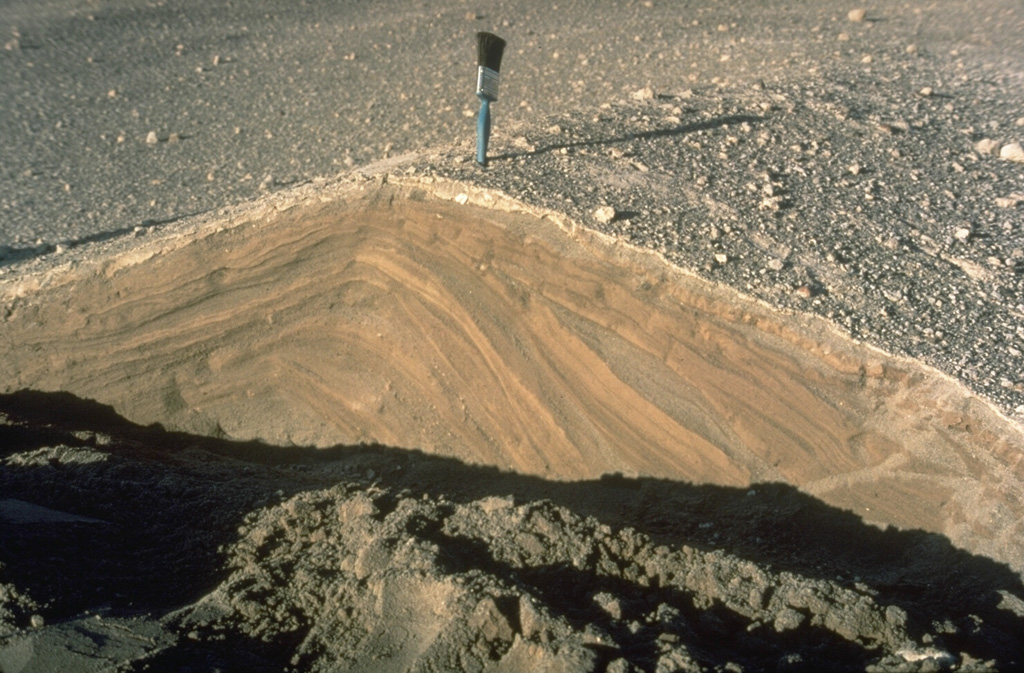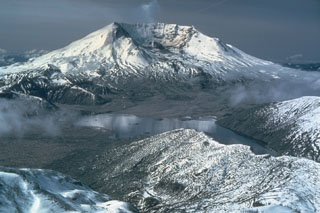Global Volcanism Program | Image GVP-02908

Pyroclastic surges are dilute pyroclastic flows with a high proportion of gas. They originated from secondary phreatic explosions at Mount St. Helens in 1980 and produced these cross-bedded layers. They were deposited from successive, rapidly moving horizontal clouds of gas, ash, and rock fragments that resulted from the interaction of hot pyroclastic flow deposits from the May 18 eruption with melt water produced by glacial ice carried down by the collapse of the summit.
Photo by Norm Banks, 1980 (U.S. Geological Survey).
![]() This image is made available as a Public Domain Work, but proper attribution is appreciated.
This image is made available as a Public Domain Work, but proper attribution is appreciated.
Galleries: Pyroclastic Flows
Keywords: deposit | stratigraphy | pyroclastic density current (PDC) | field work | geology | pyroclastic surge

St. Helens
